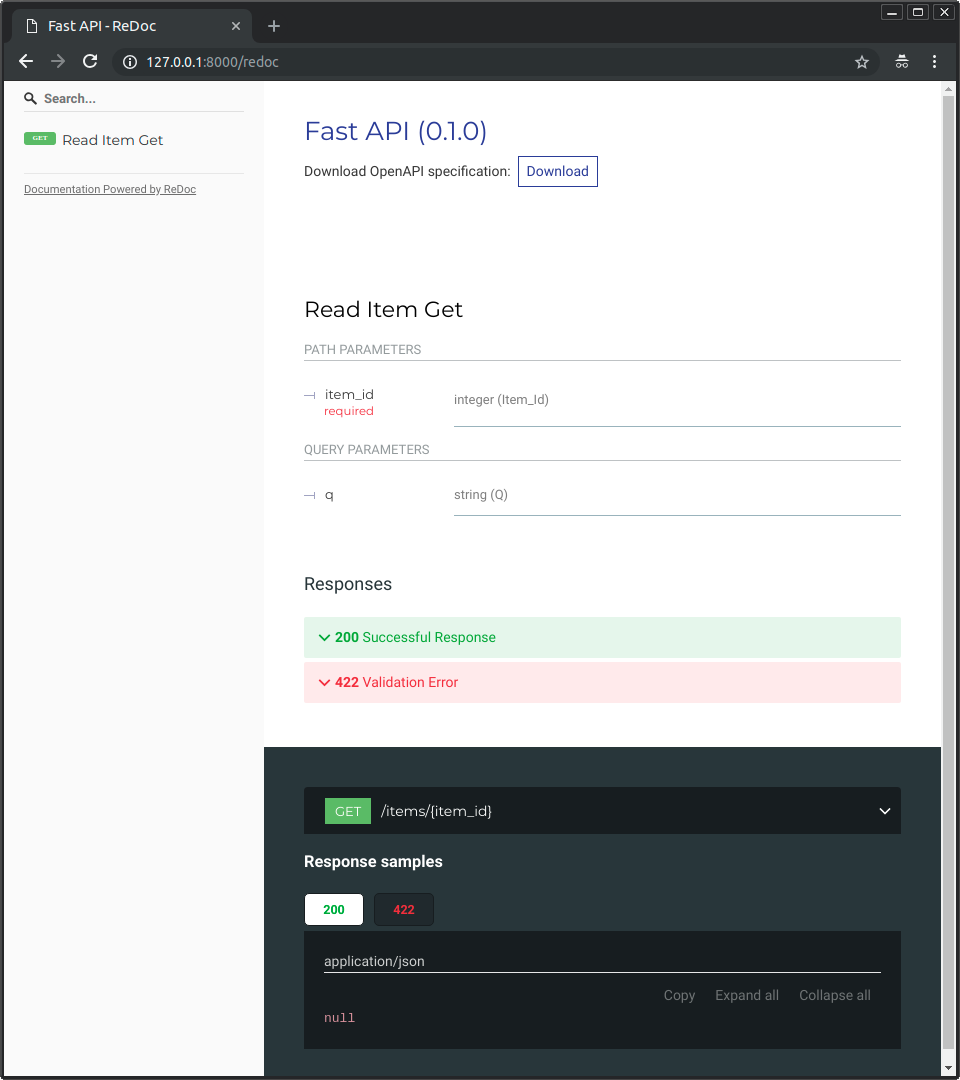- Sort Score
- Result 10 results
- Languages All
Results 181 - 190 of 491 for declared (0.15 sec)
-
guava-tests/test/com/google/common/reflect/SubtypeTester.java
* <p>The declaration methods must be public. */ @AndroidIncompatible // only used by android incompatible tests. @NullUnmarked abstract class SubtypeTester implements Cloneable { /** Annotates a public method that declares subtype assertion. */ @RequiredModifiers(modifier = Modifier.PUBLIC) @Retention(RetentionPolicy.RUNTIME) @Target(ElementType.METHOD) @Keep @interface TestSubtype {Registered: Fri Dec 26 12:43:10 UTC 2025 - Last Modified: Tue Nov 25 23:29:58 UTC 2025 - 6.2K bytes - Viewed (0) -
docs/fr/docs/tutorial/background-tasks.md
* Les arguments nommés à passer à la fonction de tâche (`message="some notification"`). ## Injection de dépendances Utiliser `BackgroundTasks` fonctionne aussi avec le système d'injection de dépendances. Vous pouvez déclarer un paramètre de type `BackgroundTasks` à différents niveaux : dans une *fonction de chemin*, dans une dépendance, dans une sous-dépendance...
Registered: Sun Dec 28 07:19:09 UTC 2025 - Last Modified: Sat Oct 11 17:48:49 UTC 2025 - 5.5K bytes - Viewed (0) -
docs/pt/docs/advanced/templates.md
$ pip install jinja2 ---> 100% ``` </div> ## Usando `Jinja2Templates` { #using-jinja2templates } * Importe `Jinja2Templates`. * Crie um objeto `templates` que você possa reutilizar posteriormente. * Declare um parâmetro `Request` no *path operation* que retornará um template.Registered: Sun Dec 28 07:19:09 UTC 2025 - Last Modified: Wed Dec 17 20:41:43 UTC 2025 - 3.6K bytes - Viewed (0) -
android/guava-tests/test/com/google/common/reflect/SubtypeTester.java
* <p>The declaration methods must be public. */ @AndroidIncompatible // only used by android incompatible tests. @NullUnmarked abstract class SubtypeTester implements Cloneable { /** Annotates a public method that declares subtype assertion. */ @RequiredModifiers(modifier = Modifier.PUBLIC) @Retention(RetentionPolicy.RUNTIME) @Target(ElementType.METHOD) @Keep @interface TestSubtype {Registered: Fri Dec 26 12:43:10 UTC 2025 - Last Modified: Tue Nov 25 23:29:58 UTC 2025 - 6.2K bytes - Viewed (0) -
docs/fr/docs/index.md
 ## Exemple plus poussé Maintenant, modifiez le fichier `main.py` pour recevoir <abbr title="en anglais : body">le corps</abbr> d'une requête `PUT`. Déclarez ce corps en utilisant les types Python standards, grâce à Pydantic. ```Python hl_lines="4 9-12 25-27" from typing import Union from fastapi import FastAPI from pydantic import BaseModel
Registered: Sun Dec 28 07:19:09 UTC 2025 - Last Modified: Sat Oct 11 17:48:49 UTC 2025 - 22K bytes - Viewed (0) -
docs/pt/docs/python-types.md
O Python possui suporte para "dicas de tipo" ou "type hints" (também chamado de "anotações de tipo" ou "type annotations") Esses **"type hints"** são uma sintaxe especial que permite declarar o <abbr title = "por exemplo: str, int, float, bool">tipo</abbr> de uma variável. Ao declarar tipos para suas variáveis, editores e ferramentas podem oferecer um melhor suporte.
Registered: Sun Dec 28 07:19:09 UTC 2025 - Last Modified: Wed Dec 17 20:41:43 UTC 2025 - 16.7K bytes - Viewed (0) -
docs/es/docs/tutorial/dependencies/classes-as-dependencies.md
Podemos hacerlo mejor... ## Qué hace a una dependencia { #what-makes-a-dependency } Hasta ahora has visto dependencias declaradas como funciones. Pero esa no es la única forma de declarar dependencias (aunque probablemente sea la más común). El factor clave es que una dependencia debe ser un "callable". Un "**callable**" en Python es cualquier cosa que Python pueda "llamar" como una función.Registered: Sun Dec 28 07:19:09 UTC 2025 - Last Modified: Wed Dec 17 20:41:43 UTC 2025 - 7.1K bytes - Viewed (0) -
docs/es/docs/tutorial/dependencies/sub-dependencies.md
Luego puedes crear otra función de dependencia (un "dependable") que al mismo tiempo declare una dependencia propia (por lo que también es un "dependant"): {* ../../docs_src/dependencies/tutorial005_an_py310.py hl[13] *} Centrémonos en los parámetros declarados: * Aunque esta función es una dependencia ("dependable") en sí misma, también declara otra dependencia (depende de algo más).
Registered: Sun Dec 28 07:19:09 UTC 2025 - Last Modified: Wed Dec 17 20:41:43 UTC 2025 - 3.9K bytes - Viewed (0) -
docs/es/docs/tutorial/response-model.md
Si tienes chequeos estrictos de tipos en tu editor, mypy, etc., puedes declarar el tipo de retorno de la función como `Any`. De esa manera le dices al editor que intencionalmente estás devolviendo cualquier cosa. Pero FastAPI todavía hará la documentación de datos, validación, filtrado, etc. con `response_model`. /// ### Prioridad del `response_model` { #response-model-priority }Registered: Sun Dec 28 07:19:09 UTC 2025 - Last Modified: Wed Dec 17 20:41:43 UTC 2025 - 17.7K bytes - Viewed (0) -
docs/pt/docs/tutorial/sql-databases.md
Como cada modelo SQLModel também é um modelo Pydantic, você pode usá-lo nas mesmas **anotações de tipo** que usaria para modelos Pydantic. Por exemplo, se você declarar um parâmetro do tipo `Hero`, ele será lido do **corpo JSON**. Da mesma forma, você pode declará-lo como o **tipo de retorno** da função, e então o formato dos dados aparecerá na interface de documentação automática da API.
Registered: Sun Dec 28 07:19:09 UTC 2025 - Last Modified: Tue Dec 16 20:32:40 UTC 2025 - 16.9K bytes - Viewed (0)